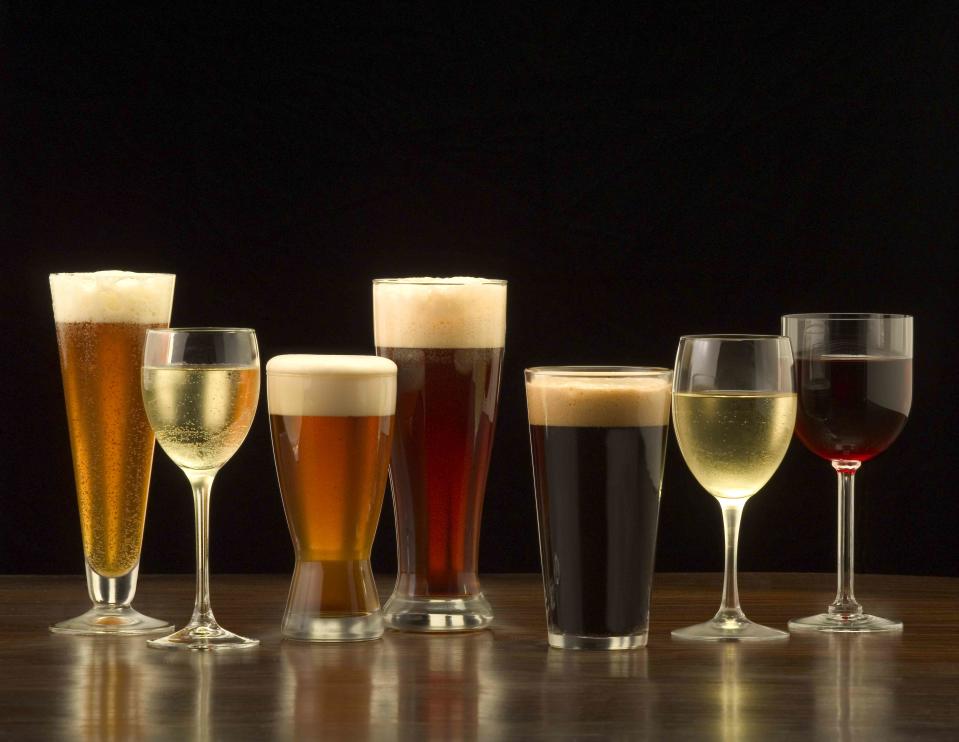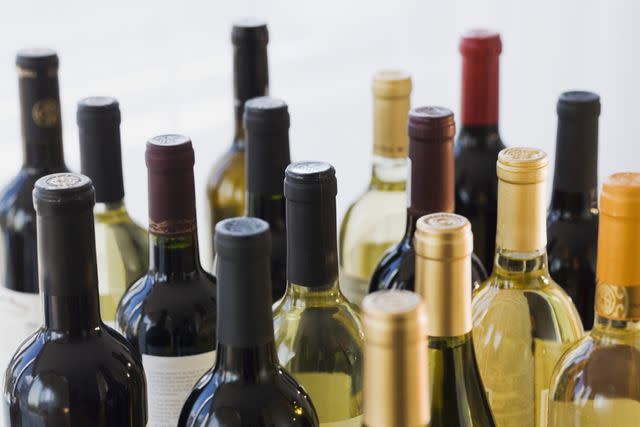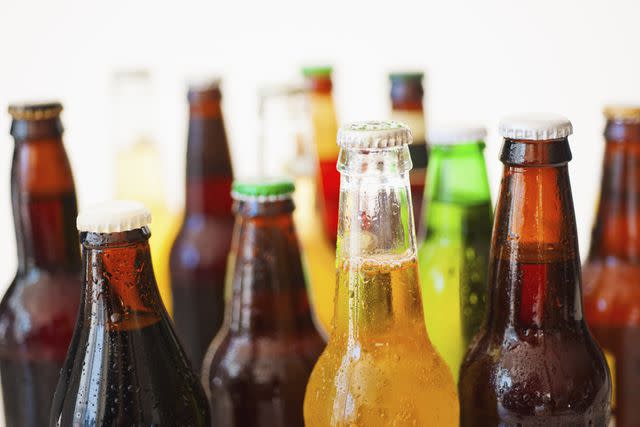Does Alcohol Expire? An Expert Explains
It depends on two important factors.

It’s a safe bet that in our best efforts to keep a stocked bar cart, there might be bottles of alcohol that haven’t been touched in quite a few months.
Perhaps you only needed orange-flavored triple sec liqueur for a single recipe or a friend brought over a bottle of gin which isn’t your preferred spirit. Either way, if you have bottles of liquor, wine, or beer that have been sitting around, you may wonder: Does alcohol expire?
The short answer is that it depends on the type of alcohol and if it's been opened.
Related: 50+ Southern Porch Cocktails Begging To Be Your New House Drink
When alcohol is unopened, it can last much longer – sometimes even indefinitely – than alcohol that has been opened. The other factor when trying to figure out if alcohol has expired is the type of alcohol – beer, wine, or liquor.
“Alcohol can break down, but it is usually not the cause of something going bad or spoiling,” Jerry Lanuzza, associate professor at Johnson & Wales University in Charlotte, North Carolina tells Southern Living.
Lanuzza says that “most of the time” when alcohol starts to taste “off” it's due to other ingredients or storage factors, such as oxidation, extreme or repeated temperature variations while being stored, or how it may be stored such as vertically or horizontally.
Meet Our Expert
Jerry Lanuzza, MS Ed., CHE, Associate Professor, College of Food Innovation and Technology, Johnson & Wales University, Charlotte Campus
What Type Of Alcohol Expires?
Beer has the shortest shelf-life (weeks to months), followed by wines (months to years) and then spirits (years to indefinitely), says Lanuzza.
“There are other factors that contribute to shelf-life such as the quality, pasteurization – or not for beers– types of wines – reds generally last longer than white wines – and the amount of alcohol, or proof, in a spirit,” he explains.
Tips
“The higher the proof, the longer the shelf life,” says Lanuzza.
Related: How Long Do Open Bottles Of Wine Actually Last?

Does Unopened Alcohol Expire?
Unopened containers generally last longer than any that have been opened and unfinished.
“Beer will go flat, which isn’t going bad, but becomes much less enjoyable,” Lanuzza says. “Wine can (and) will oxidize and turn into vinegar within a few days if the air is not removed by a hand operated vacuum pump, and some alcohols that have cream (such as) Bailey’s Irish Cream can curdle after a long time sitting on the shelf.”
Lanuzza shares that whiskey, rum, vodka, and similar spirits don’t usually spoil.
Related: What's The Difference Between Liquor And Spirits?

How Should Alcohol Be Stored?
When it comes to storage, all alcohol can be stored in cool dark well-ventilated areas.
Most alcoholic beverages are meant to be consumed when they are released for sale. Lanuzza says that wine that is available in grocery stores is not generally meant to be cellared, it is meant to be consumed.
“The good rule to follow is don’t buy more than you are planning to consume soon after purchasing,” Lanuzza says.
Lanuzza also suggests a few other storage tips:
Avoid sunlight and temperature variations, such as next to a furnace or in an attic.
Store horizontally, especially if you are going to hold on to it for an extended time. “This can help ensure the corks don’t dry out and shrink, thus letting in air,” Lanuzza says.
Don’t overdo it. Try not to buy more than you plan to drink in a reasonable amount of time.
Chill, when necessary. If you get beer cold, keep it cold if possible. “It will lose quality quickly if you move it back and forth between cold storage and not,” Lanuzza says.
Related: 5 Mistakes You Might Be Making With Wine, According To Southern Sommeliers
For more Southern Living news, make sure to sign up for our newsletter!
Read the original article on Southern Living.

